-
About
- About Listly
- Community & Support
- Howto
- Chrome Extension
- Bookmarklet
- WordPress Plugin
- Listly Premium
- Privacy
- Terms
- DMCA Copyright
- © 2010-2025 Boomy Labs

 Victoria
Victoria
Listly by Victoria
Fascinating Facts About Google Most People Don’t Know
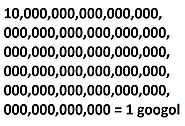
The term was coined in 1920 by 9-year-old Milton Sirotta (1911–1981), nephew of U.S. mathematician Edward Kasner.[1] Kasner popularized the concept in his 1940 book Mathematics and the Imagination.[2] Other names for googol include ten duotrigintillion on the short scale, ten thousand sexdecillion on the long scale, or ten sexdecilliard on the Peletier long scale.
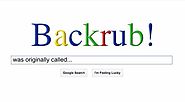
According to Stanford’s David Koller, and Google’s own website, Page and Brin’s 1996 foray into the world of search engines was initially called “BackRub.”
Yes, BackRub.
They called it this because the program analyzed the web’s “back links” to understand how important a website was, and what other sites it related to. BackRub operated on Stanford’s servers until it eventually took up too much bandwidth.
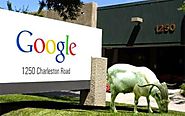
The workers guarantee they discover it quieting to see goats outside the windows.
Google is renting the goats from a company called California Grazing. Apparently, every so often a herder will bring about 200 of them to the campus and they’ll roam around for a week eating the grass. Not only that, these goats will fertilize the land at the same time — yes, that way.
Google claims the goats will cost about the same as lawn mowers would. And a border collie named Jen will be brought onto Google’s payroll to help with the herding as well, apparently. No word on how the maintenance workers who previously had this job feel about losing work to goats.

'Google Instant' begins hunting down whatever you write when you write it, in this manner leaving no time or probability to click that button. The 'I'm Feeling Lucky' button evidently cost the organization $110 million consistently, in light of the fact that it would sidestep all advertisements to go to the best hunt promptly.

Android, Youtube, Waze, you name it, Google owns it. Google Chairman Eric Schmidt just took the stage at the Le Web conference to chat about Android, the search giant’s expansion and more. When he was asked about why the search engine hadn’t acquired any French companies, Schmidt jokingly commented on stage that Google was now buying around one company day.

If Google sees that you're searching for specific programming terms such as Python, they might just ask you to apply for a job. Google uses a secret web tool called foo.bar to recruit new employees based on what they search for online. Specific searches relating to coding and software development prompt Google to ask the user if they are "up for a challenge" in a system which recently landed a college graduate a job at the company.

It occurred when Larry and Sergey went to the Burning Man Festival in Nevada. It was added to the landing page to tell clients they were out of office and couldn't settle specialized issues like a server crash.
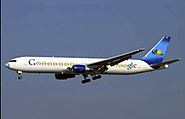
In the annals of perks enjoyed by America’s corporate executives, the founders of Google may have set a new standard: an uncrowded, federally managed runway for their private jet that is only a few minutes’ drive from their offices.
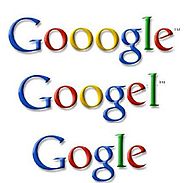
Google may be earning an alleged $500 million a year via companies and individuals who register deceptive website addresses.
The claim centres on a controversial scheme known as “typosquatting“, the practice of registering a misspelled variant of a popular web domain. For example, a typosquatter might register “newscientsist.com” in the hope of getting visits from people who meant to type “newscientist.com”.
If that mistake is made frequently enough, the owner of newscientsist.com can profit by placing ads on their page. They could, in particular, use Google’s advertising network which automatically assigns ads to a page based on its content, or using keywords provided by the page’s owner.
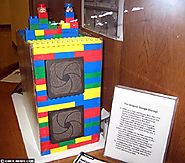
In 1996 Larry Page and Sergey Brin, then PhD students in Standford CSD, working on the Digital Library Project, needed a large amount of diskspace to test their Pagerank algorithm on actual world-wide-web data. At that time 4 GigaByte hard disk were the largest available, so they assembed 10 of these drives into a low cost cabinet.
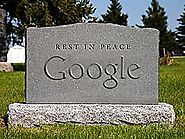
Google treats its dead employees better than some companies do their living workers. Google's unusual "death benefits" include paying the deceased's spouse or domestic partner 50% of their salary for 10 years, the company's "chief people officer" Laszlo Bock revealed in an interview this week with Forbes

Cofounder Sergey Brin once commanded his architects and office designers that “No one should be more than 150 feet away from food.” Since that proclamation, many outsiders have written offered their take on the intent behind this legendary Google perk. The most pessimistic explanation for free food (as well as onsite haircuts, complimentary laundry, nap pods and the like) is that Google wants to create a workplace where workers don’t want to leave, and so it’s a thinly-veiled attempt to get more raw work hours out of their employees.
It may seem like only a fun and futile extra, however it was really helpful in dodging the Great Firewall in China that restricted Google.
Max Braun, a software engineer at Google, decided to make Arnold’s magic mirror a reality. Using supplies you can find easily online or in stores, Braun turned his boring bathroom mirror into a smart one capable of delivering the news and weather.

Whoops. As of today, Google’s market cap stands at $167 billion.
Excite, meanwhile, was acquired by Ask Jeeves in 2004. That company became Ask.com, and now it’s owned by Barry Diller’s IAC. As Diller stated at Disrupt today, Ask would probably be better off outside of IAC at this point.

The question of it’s Doodle – when is Google’s birthday? – isn’t actually answerable. The company has six birthdays, at least, and has just decided to start celebrating it on 27 September.
